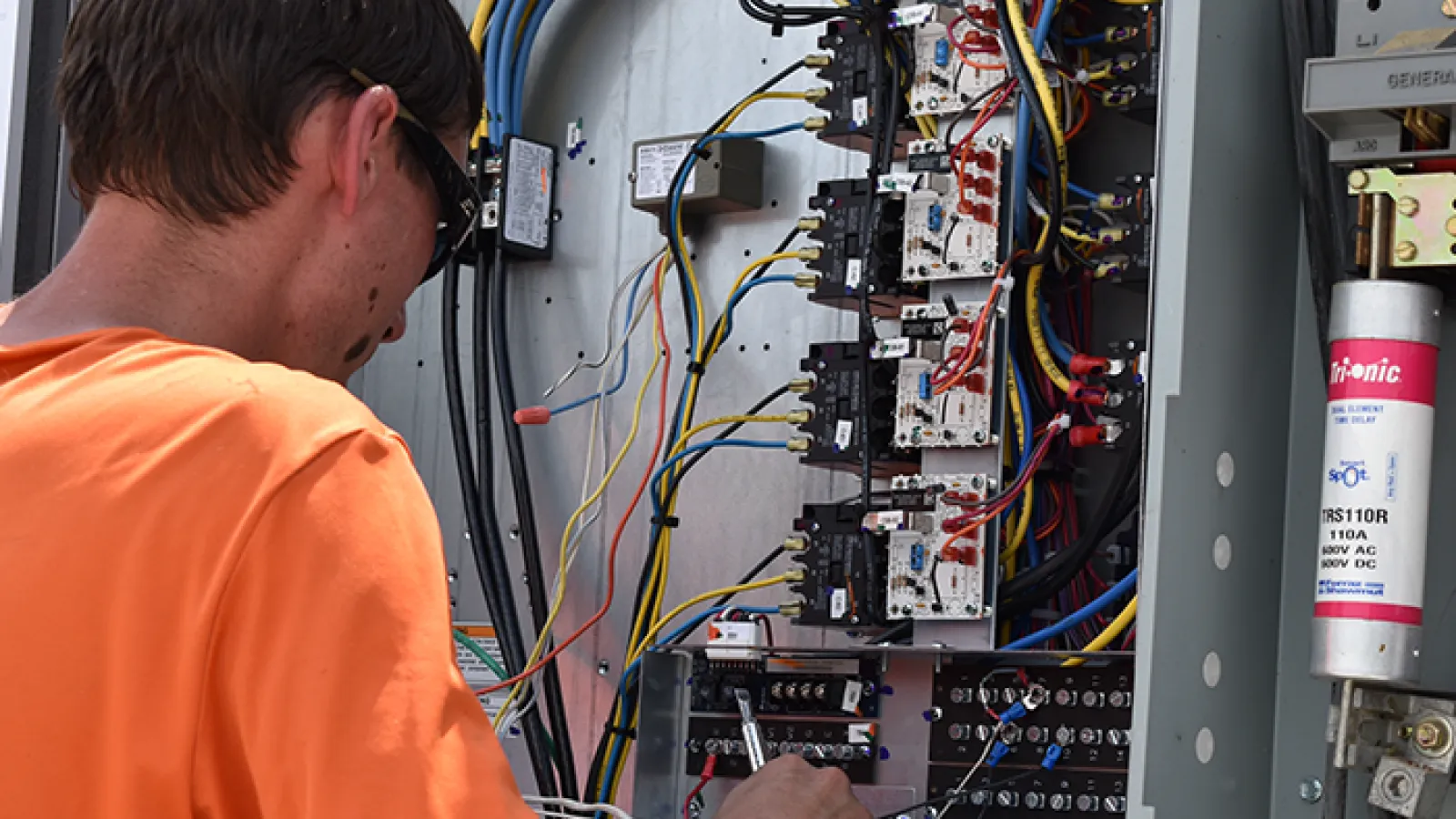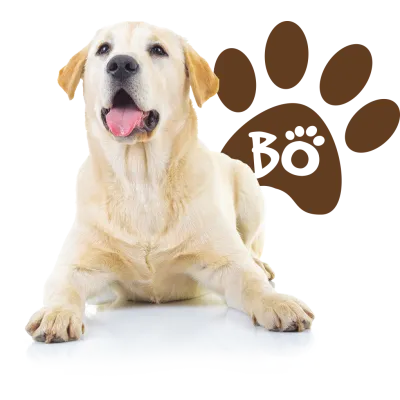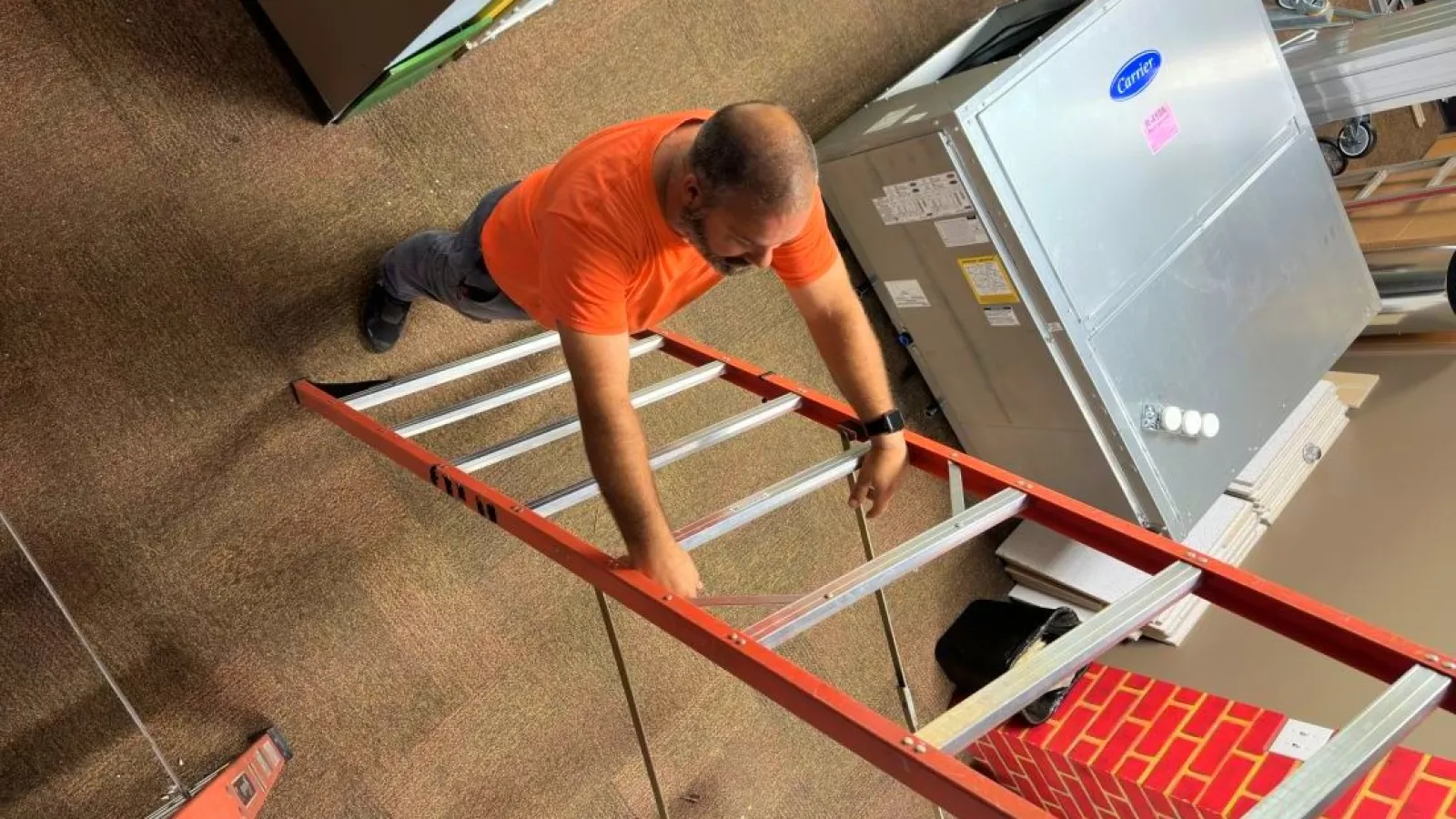This time of year, facility maintenance teams throughout the Atlanta area start gearing up for winter. Before temperatures drop, you’ll want to make sure your commercial heating equipment is in top shape and ready to run without interruption once the time comes. Prepare your building with these fall commercial HVAC system tips from Estes Commercial.
1. Book Professional Maintenance Services
Your facility’s heating equipment should be professionally tuned up at least once per year. Fall is the best time to schedule a maintenance tune up for your heating system, as having this service completed before the system goes into use can spare you surprise breakdowns and heat outages once cold weather arrives. In addition to the fall commercial HVAC tips your team should implement, make sure to incorporate a professional maintenance tune up into your routine.
2. Review and Adjust Building Schedules
When it’s time to turn off cooling equipment and fire up the heating system, your facility’s building automation controls and thermostat schedules will need updating. Temperature needs will be different once heating systems are in use, so think ahead now and create thermostat schedules that can be put into effect quickly once temperatures drop as you work through our fall commercial building HVAC tips.
Will your facility’s occupancy or production schedules change with the seasons? Now is the time to look ahead and make adjustments to the building automation controls to ensure your facility takes advantage of every opportunity to conserve and save energy.
3. Test Units and Replace Batteries
Our fall HVAC maintenance tips include some practical matters – changing batteries in thermostats, smoke detectors, and carbon monoxide detectors, and testing these units, too! Move throughout the building and test all units, changing batteries as needed. If thermostats, smoke detectors, and carbon monoxide alarms are connected into your building monitoring system, verify that all units are linked and online now so that repairs can be made right away if needed.
4. Look for HVAC Trouble Signs
Even if your building is still running the cooling system, consider observing the HVAC system’s operation now for clues that point to possible issues in the future. These performance issues can tell you there is a problem with HVAC system operation that should be addressed now, as the problem could snowball into a serious breakdown or component damage if ignored:
- Hot and cold spots in different areas of the building
- Strange noises from HVAC equipment
- Odors from vents
- Trouble maintaining consistent temperatures
5. Put Cooling Equipment to Bed
Once your cooling systems are off for the season, make sure to care for these units even when they aren’t in use.
- Clean outdoor units to remove debris and vegetation growing up around the equipment.
- Make sure unit mountings are secure, and secure items in the area so the units are not damaged by severe weather.
- Use a bleach solution to clean the exterior of the units, washing away bird droppings and other natural debris.
6. Change the HVAC System’s Air Filters
Most commercial HVAC systems require air filter changes every one to three months. Filter changes are among the most important fall maintenance tips as dirty filters can cause serious HVAC system issues going into heating season. Make sure to check each filter this season and replace them as needed. Keep a filter maintenance logbook to stay on top of filter checks and filter replacements throughout the year.
Commercial HVAC Maintenance in Atlanta, GA
Estes Commercial’s commercial heating experts perform preventive maintenance services to help your heating equipment take on the cold season ahead. Contact us today to schedule routine maintenance for your building’s heating system and to learn more about customized HVAC maintenance plans for your facility’s entire system.


